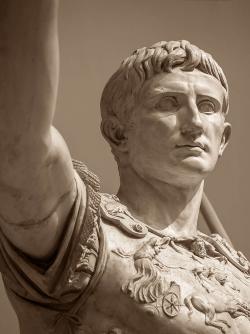What Do You Celebrate?
The biggest holiday in the world is coming! Billions worldwide will celebrate the fictional birthday of Jesus the Christ, but discerning people question whether someone who claims to be Christian should have anything to do with it. They ask, “Why do people attempt to Christianize a day steeped in pre-Christian, pagan practices? Why do they celebrate the birth of their Savior on the birthday of an imaginary sun god?” That the celebration of Christmas originates in paganism is indisputable!
Few people are willing to buck the tide of tradition. What about you? Jesus chided the Pharisees of His day, “Well did Isaiah prophesy of you hypocrites, as it is written: ‘This people honors Me with their lips, but their heart is far from Me. And in vain they worship Me, teaching as doctrines the commandments of men.’ For laying aside the commandment of God, you hold the tradition of men” (Mark 7:6–8).
Are the holders of today’s traditions any different? Consider the facts. A little research reveals that biblical Holy Days have been replaced with futile paganism, ostensibly “in the name of Christ.” William B. Eerdman’s Handbook to the History of Christianity explains:
The Christian church took over many pagan ideas and images. From sun-worship, for example, came the celebration of Christ’s birth on the twenty-fifth of December, the birthday of the Sun. Saturnalia, the Roman winter festival of 17–21 of December, provided the merriment, gift-giving and candles typical of later Christmas holidays. Sun-worship hung on in Roman Christianity…. Some pagan customs which were later Christianized, for example the use of candles, incense and garlands, were at first avoided by the church because they symbolized paganism (pp. 131–132).
Consider carefully! How does one “Christianize” a “pagan custom”? By simply associating the name of Christ with it? Such a concept is entirely ridiculous!
When Truth Meets Apathy
I have quoted Eerdman’s words many times, only to be disappointed by a ho-hum attitude from readers and listeners. Both Jesus and Paul quoted the prophet Isaiah, saying, “Hearing you will hear and shall not understand, and seeing you will see and not perceive; for the hearts of this people have grown dull. Their ears are hard of hearing, and their eyes they have closed, lest they should see with their eyes and hear with their ears, lest they should understand with their hearts and turn, so that I should heal them” (Matthew 13:14–15).
The sad fact is that most people would rather hang on to tradition, even if it means rejecting the will of God!
In his highly respected work Caesar and Christ, historian Will Durant reveals the corruption inherent in what almost everyone erroneously thinks is the religion of Christ. He writes, “Christianity did not destroy paganism; it adopted it” (p. 595). He then lists a number of heathen doctrines that are fully embedded in traditional Christianity, before stating the obvious: “Christianity was the last great creation of the ancient pagan world” (p. 595), and “Christianity became the last and greatest of the mystery religions” (p. 600).
Statements such as these ought to inspire change within any who truly want to serve God, but in most cases, they do not! The Bible tells us why.
As I have already shown, most people are dull of hearing. They hear truth, may even rejoice in knowing the truth, but fail to act on it. They have eyes to see, but are blind to the need for change. This is part of the problem, but not the entire story.
To some, the truth is merely a subject for intellectual exercise. For such individuals, knowing is what matters, and action need not follow understanding. The Apostle John tells us, “Now by this we know that we know Him, if we keep His commandments” (1 John 2:3). The New Bible Commentary Revised explains, “For John the knowledge of God is not some mystic vision or intellectual insight. It is shown if we keep his commandments. Obedience is not a spectacular virtue, but it is at the basis of all true Christian service.”
This was true in the first century and is still true today. Many people in Jesus’ day also believed in Him, including many prominent individuals, but still denied their belief for fear of what it could cost them. “Nevertheless even among the rulers many believed in Him, but because of the Pharisees they did not confess Him, lest they should be put out of the synagogue; for they loved the praise of men more than the praise of God” (John 12:42–43).
Courage over Convenience
The fact is that it is not easy to be a true Christian. Few have the courage and commitment to go against the crowd. The opinions of friends and family members often take precedence. Is this pleasing to our Maker? Jesus answers this question unequivocally in Matthew’s gospel:
Do not think that I came to bring peace on earth. I did not come to bring peace but a sword. For I have come to “set a man against his father, a daughter against her mother, and a daughter-in-law against her mother-in-law”; and “a man’s enemies will be those of his own household.” He who loves father or mother more than Me is not worthy of Me. And he who loves son or daughter more than Me is not worthy of Me. And he who does not take his cross and follow after Me is not worthy of Me. He who finds his life will lose it, and he who loses his life for My sake will find it (Matthew 10:34–39; see also Luke 14:26).
It is not that Christ desired to disrupt families, but that He knew of the trouble that follows when an individual repents of sin and rejects long-held traditions. He knew that people would put their friends and relatives ahead of Him, and God will not tolerate being second to anything or anyone. As the Apostle Paul questions, “Do you not know that to whom you present yourselves slaves to obey, you are that one’s slaves whom you obey, whether of sin leading to death, or of obedience leading to righteousness?” (Romans 6:16).
It is human nature to reason around God’s clear commands. We are naturally hostile to His law, as Paul tells us in Romans 8:7. If God says to observe the seventh-day Sabbath, people reason that they can choose any day they want, but somehow they always end up choosing the day Emperor Constantine called the “venerable day of the sun,” rather than the day God thundered from Mount Sinai. Rather than observing the seven annual Festivals spelled out in both the Old and New Testaments, modern “Christianity” borrows from paganism, contrary to unmistakable commands not to do so.
Israel was instructed not to follow the customs of the people they were to replace. “When the Lord your God cuts off from before you the nations which you go to dispossess, and you displace them and dwell in their land, take heed to yourself that you are not ensnared to follow them, after they are destroyed from before you, and that you do not inquire after their gods, saying, ‘How did these nations serve their gods? I also will do likewise.’ You shall not worship the Lord your God in that way… Whatever I command you, be careful to observe it; you shall not add to it nor take away from it” (Deuteronomy 12:29–32).
So, what about you? Are you dull of hearing? Are you spiritually blind? Or are you willing to do whatever it takes to follow Christ?
Your answers to these questions are demonstrated by your actions, not by your words.






